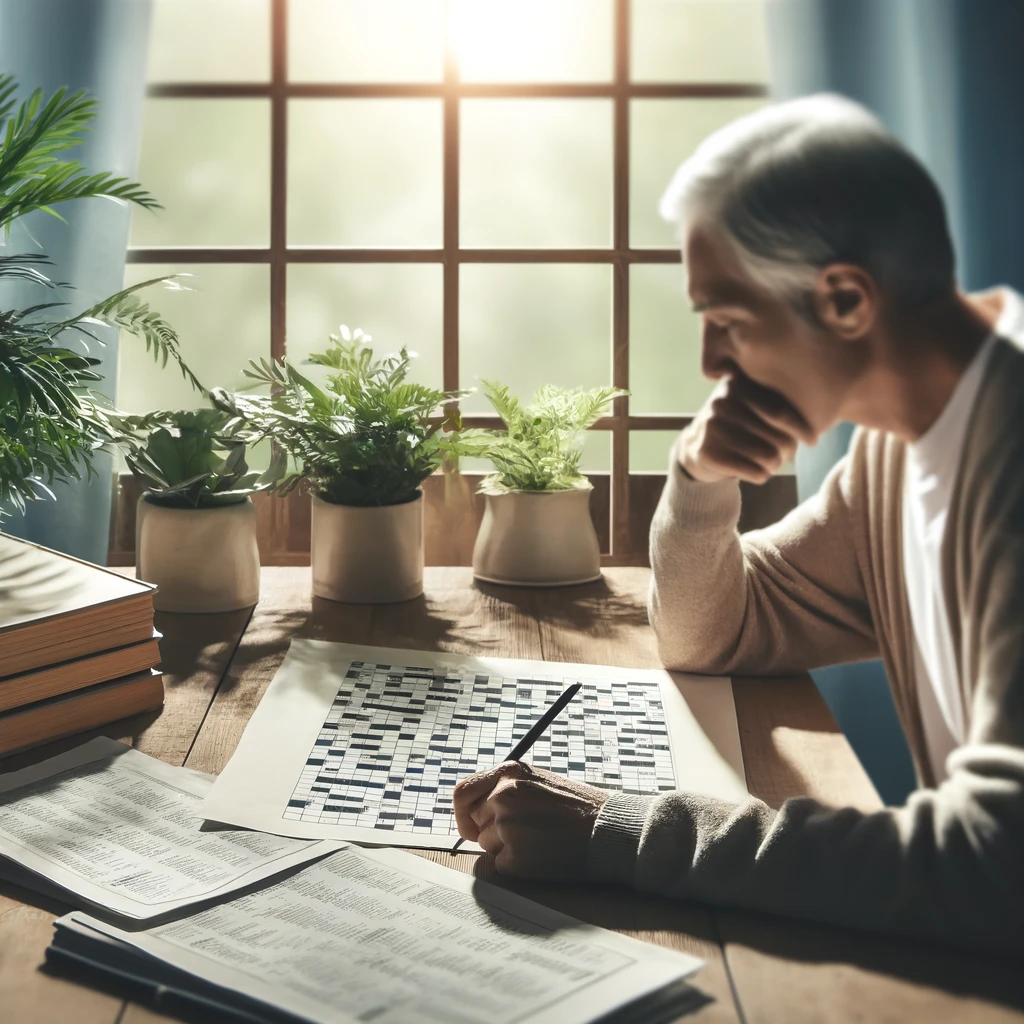In an age dominated by digital distractions and relentless pursuit of efficiency, a seemingly old-fashioned hobby emerges as a beacon of cognitive and emotional wellness: the crossword puzzle. Esteemed publications like the Wall Street Journal have long championed the crossword not merely as entertainment but as a vital exercise for the mind. Delving into the world of crosswords is more than a leisurely pastime; it’s a commitment to maintaining mental sharpness, emotional balance, and a spirited sense of curiosity.
Cognitive CrossFit: Strengthening Your Brain
Neuroscientists affirm the value of regular mental challenges like crossword puzzles in bolstering cognitive function. According to a study reported by the American Academy of Neurology, engaging in word puzzles can significantly improve brain function, particularly in memory and attention (Source: Neurology.org). As Stephen King, an avid crossword enthusiast, once remarked, “The beauty of the crossword puzzle is that you know there is a solution.” This relentless pursuit of solutions exercises the brain in ways comparable to physical exercise for the body, enhancing problem-solving skills, and fostering a nimble mind.
The Antidote to the Digital Age’s Stress
The modern era’s bombardment of information and the omnipresence of screen time can lead to heightened stress and a sense of mental fragmentation. Crossword puzzles offer a sanctuary of focused attention, a rare commodity in today’s multitasking world. Psychologists have noted the therapeutic effects of engaging in activities that promote a state of flow, a concept popularized by psychologist Mihaly Csikszentmihalyi. He describes flow as a state of complete immersion in an activity, providing a profound sense of satisfaction (Source: “Flow: The Psychology of Optimal Experience”). Solving crosswords can induce this state, acting as a mindful retreat from the stresses of daily life.
Building Bridges: Crosswords and Community
The social aspect of crossword solving is often overlooked. Yet, as Will Shortz, The New York Times crossword editor, observes, “Puzzles are a great way to bring people together.” Sharing the challenge of a puzzle or discussing a particularly clever clue can create connections and foster a sense of community. In an era where loneliness is increasingly recognized as a public health issue, the communal aspect of crossword solving can act as a counterbalance, enriching our social lives (Source: Health.Harvard.edu on the health implications of loneliness).
The Path to a Lifetime of Curiosity
Beyond the immediate benefits to cognitive health and stress relief, crosswords contribute to a lifelong habit of learning and curiosity. Each puzzle is a mini-education in itself, covering a wide range of topics from history and science to pop culture. This constant exposure to new information keeps the mind engaged and youthful, echoing the sentiment of Albert Einstein, who famously stated, “Once you stop learning, you start dying.” Crosswords embody the joy of learning, ensuring that our minds remain vibrant and curious.
Conclusion: A Prescription for Mental Wellness
As we navigate the complexities of modern life, finding time for crossword puzzles might seem like a luxury. However, considering the myriad benefits they offer, perhaps it’s time to view them as a necessity. The Wall Street Journal and other esteemed publications not only provide us with daily news and insights but also offer a gateway to better mental health through their crossword puzzles.
In embracing the challenge of the crossword, we do not merely seek a diversion but engage in a holistic practice that nurtures our minds, soothes our spirits, and connects us with others. So, the next time you ponder whether to dive into a crossword puzzle, remember: it’s not just a puzzle; it’s a path to a healthier, happier mind.
References:
- American Academy of Neurology, “Brain Function and Exercise,” Neurology.org.
- Csikszentmihalyi, Mihaly. “Flow: The Psychology of Optimal Experience.”
- Harvard Health Publishing, “The health implications of loneliness,” Health.Harvard.edu.
- Quotes from Stephen King and Will Shortz provide insights into the personal and communal value of crossword solving.
